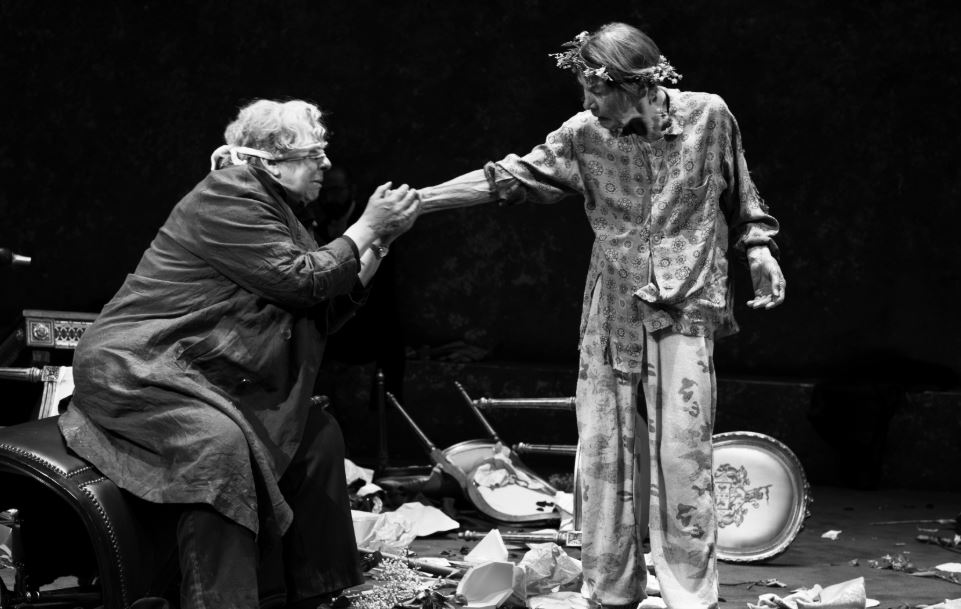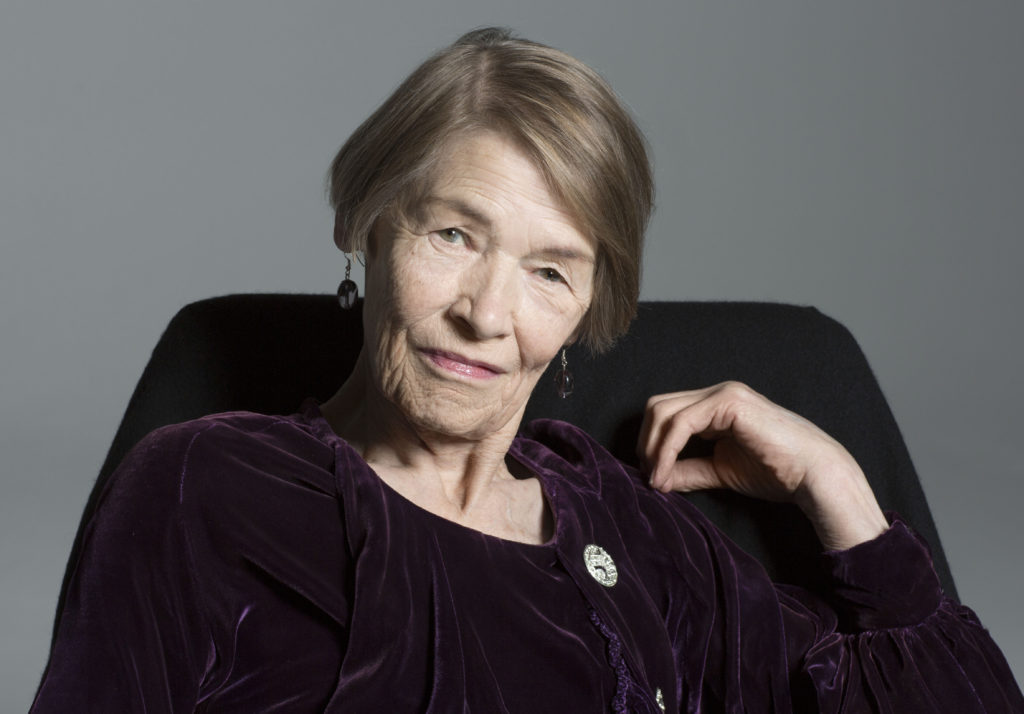Glenda Jackson has worked extensively in film, television, and theater, and served in the British Parliament. She’s nabbed two Oscars (“Women in Love” and “A Touch of Class”), two Emmy Awards (both for “Elizabeth R”), and a Tony (“Three Tall Women”). Currently, Jackson is taking on one of theater’s most iconic roles: King Lear. She’s portraying the titular character, a mentally deteriorating monarch, in Sam Gold’s Broadway rendition.
Clocking in at 3.5 hours, “King Lear” requires eight performances per week — with over 700 lines a performance — from Jackson. For many actors, playing King Lear is the challenge of their career, yet this Jackson’s second go-around. She previously toplined Deborah Warner’s 2016 production of “King Lear” at London’s Old Vic.
Women and Hollywood spoke to the CBE recipient during some much-deserved time off about how she came to the role of King Lear, her thoughts on how women are faring in theater, and what it’s like to share the stage with women such as Ruth Wilson, Elizabeth Marvel, Jayne Houdyshell, and Aisling O’Sullivan.
“King Lear” is playing at the Cort Theatre through July 7.
This interview has been condensed and edited.
W&H: You took a break from acting before returning to the stage a few years ago. Do you find things changing for women in the theater?
GJ: Not at all, no. I mean that in the sense that contemporary writers still don’t find women interesting. Women are rarely ever the central dramatic engine of a play. We’re there as an adjunct but never the focus of the play. I find that bizarre, although I wouldn’t argue that women universally are equal by any means.
But doors have opened for us and opportunities are being presented to us — I just find it unbelievable that contemporary writers still don’t find women interesting.
W&H: Are you finding more women behind the scenes in directorial or writing positions?
GJ: Both, yes. They’re always there not as writers or directors but as representatives of women. It’s merely the case that if a woman is successful, she’s the exception that proves the rule. If she fails, we’re all useless.
W&H: Does your old world of politics ever interact with your world of theater?
GJ: The only advantage I experienced in Parliament was the advantage of public speaking. Years ago, surveys conducted here in America stated that the thing we fear most after death is public speaking. Fortunately, that didn’t give me any heart tremors.
W&H: When was the first time you were exposed to Shakespeare’s “King Lear”?
GJ: I first did “King Lear” at the Old Vic in London in 2016, but my first real exposure was through a great friend of mine, a wonderful Spanish actress called Núria Espert. She played Lear in Barcelona and I went to see her in it. She said to me, “Why don’t you do it?” I said, “Don’t be absurd, they’ll never let me play him in England.” But then the Old Vic approached me to do a play and we agreed that I should do Lear, and that’s how it came about.
W&H: Traditionally, “King Lear” is a very patriarchal play. It’s interesting that it’s now back in 2019 in the dawn of the #MeToo movement.
GJ: I think that the battle has already been won. Essentially, a group of women in England formed a company [at The Donmar Warehouse] where they started doing all the Shakespeare histories with all women in the cast. It was hugely successful, and they were, of course, very good indeed. So, I do think that part of the battle is over.

Glenda Jackson with Jayne Houdyshell in “King Lear”: Brigitte Lacombe
W&H: Do you think that your own gender impacts how you approach the character of Lear?
GJ: I wouldn’t know because I’m a woman. It doesn’t seem to matter. What I do find most useful, from a personal point of view as a former member of Parliament, is that I went into old people’s homes and day centers, things of that nature. It was then that I discovered that one of the most interesting things about aging is that we are all living longer. The longer we live, those absolute boundaries that define gender begin to crumble and get foggy, both sides of it. I find that very useful.
What is still crap is that contemporary dramatists still don’t find women interesting.
W&H: The London production was directed by Deborah Warner and this play is directed by Sam Gold. Do you feel a difference in its interpretation?
GJ: The play is a great play. Shakespeare is the most contemporary writer around. There are tropes in this play that are being experienced even as we speak now. The difference always is that you’re working with a different group of actors. There’s obviously a difference there.
W&H: Yes, you are surrounded by so much female talent in this show. What has that experience been like for you?
GJ: It’s great because women are rarely ever the dramatic engine. If there is a good women’s part, and you’ve got it, you don’t get to work with other good actresses. That was one of the great pluses of doing “Three Tall Women” [alongside Laurie Metcalf and Alison Pill] — it’s one of the great pluses of doing this.
W&H: You’ve had such an extraordinary career. What stands out when you look both back and ahead?
GJ: I’ve been extraordinarily lucky in what is a vastly over-crowded, under-served profession, certainly for women, in the work that I’ve done and the people I’ve worked with.







